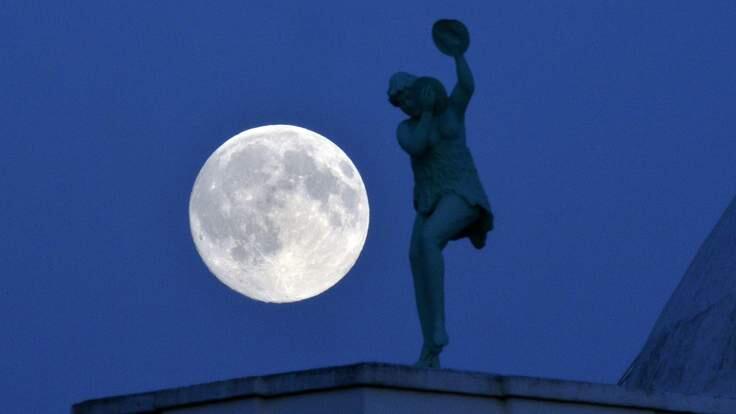Britain has experiences its first blue moon in three years as a full moon hung in the sky for the second time in a month.
The term refers to a quirk of the calendar rather than the colour of the celestial body – although the moon has been known to appear blue during certain atmospheric conditions. The “blue moon” name is used when an extra full moon appears within a specific time period, like a month or season. The last full moon in Britain occurred on 2 July. The next occurred on Friday, with moon rise taking place at 8.47pm in Durham, the nearest city to the geographical centre of mainland UK. Its highest point was due to occur at 12.43am, according to timeanddate.com, and before setting at 6.43am. Sky’s weather producer Joanna Robinson said: “Central and southern England will have the clearest skies on Friday night. “There will be a chance later in the night across Scotland, Northern Ireland and the Republic, with clouds breaking as today’s rain there clears away. “People in Wales and northern England will struggle to catch a glimpse as there’ll be a fair amount of cloud there. Their best chance will be this evening.” Although the blue moon has no major significance to astronomers, it is considered highly important by astrologers who regard it as an omen of upset, change and possibility. Some claim it signals a time to give in to the heart’s desires. The last one occurred on 31 August 2012, and the next will be seen in another three years on 31 January 2018. Its significance was captured in the famous song Blue Moon by the Tin Pan Alley songwriters Richard Rodgers and Lorenz Hart in 1934. It was first performed by Connee Boswell as the theme music to a radio programme, but was later covered by Elvis Presley and Ella Fitzgerald among others, and the Marcels, whose 1961 version went to number one in the UK and US. The moon is known to turn a distinctly blue colour when smoke or dust particles hang in the air, usually caused by wildfires or a volcano eruption. In 1883, the moon turned blue for weeks after the volcano Krakatoa exploded with the force of a nuclear bomb between Sumatra and Java. skynews











